Chemical recycling – PET-nonwovens 22- 02-2023 - Arhive
Chemical recycling – PET-nonwovens
-Tesla’s secret weapon – a press with a force of 9000 tons
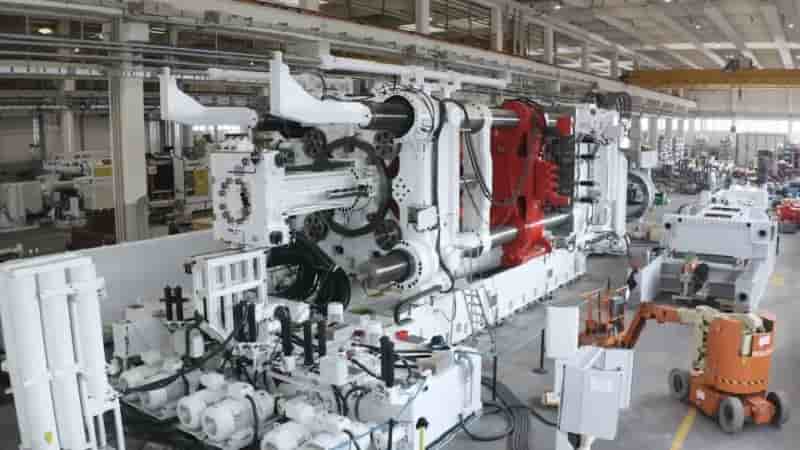
here aren’t many ways for a car manufacturer to cut costs by 40 percent. At least in Tesla’s case, we’re not talking about more optimized software or faster processors and more precise robotic arms. We’re talking pure and brutal power – like 9,000 tons of downforce. Such are the capabilities of the world’s largest foundry press, which Elon Musk’s company uses.
The giant machines allow the replacement of 60 individual components with a single module, thus simplifying the entire production process. Tesla and their Italian partners IDRA are pioneers in the use of so-called gigapresses for the production of complete car chassis from aluminum alloy. Currently, Toyota, GM, Hyundai, Volvo and Chinese companies are looking for ways to implement large presses into their production processes. Chemical recycling – PET-nonwovens
Musk: Tesla could sell 2 million cars this year
The company grew revenue by 37% and posted a record fourth-quarter profit
It is no coincidence that electric cars are the first to use the new technology – their batteries are responsible for between 25% and 40% of the total price of the vehicle. “You have to make the price of the rest lower,” IDRA general manager Ricardo Ferrario told Reuters. According to him, simplified production is the key to making electric cars more affordable.
The company, which is Chinese-owned since 2008, has been producing gigapresses since 2016, and its competitors in the market are from Europe as well as Japan and China. Its flagship is the Gigapress 9000, which has 9,000 tons of force and is as big as a house. Already used by Tesla – for the Cybertruck. Smaller models from the same manufacturer make it possible to produce a Tesla Model Y in 10 hours. Chemical recycling – PET-nonwovens
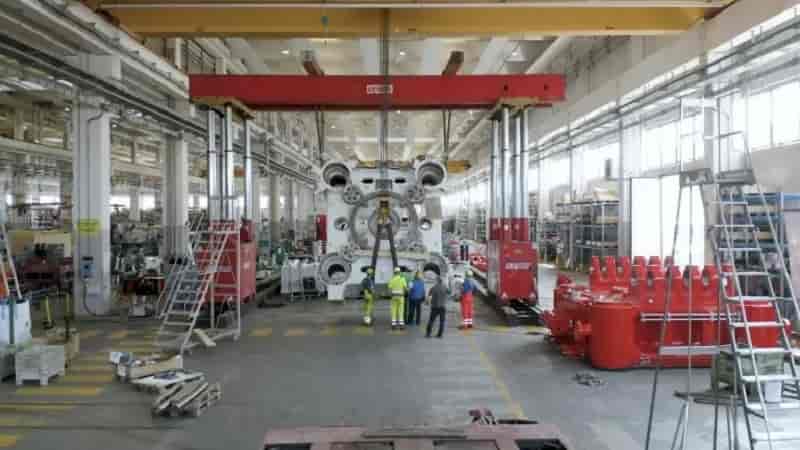
-CP Chem is partnering with Charter Next Generation to place overwrap film from recycled PE on store shelves
Chevron Phillips Chemical (CPChem) and Charter Next Generation (CNG) announced today that overwrap film made with CPChem’s Marlex Anew Circular Polyethylene is bound for store shelves in the U.S. Versatile and efficient, overwrap films help preserve food, keep medical instruments secure and sterile, and provide lightweight and durable product packaging, said Hydrocarbonprocessing. Chemical recycling – PET-nonwovens
“Together with CNG, we are transforming waste plastics into useful products and demonstrating real-world, commercial scale applications of circular plastics,” said Jay Bickett, CPChem’s Vice President of Polymers. “This collaboration is a great example of the new possibilities unlocked by advanced recycling.”
More…
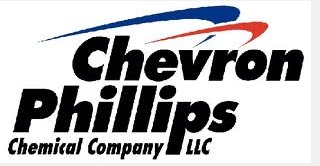
-Chemical recycling partnership looks to improve upcycling solutions
Chemical recycling company Sulzer has signed an agreement with circular technology company Fuenix Ecogy to acquire a stake in its plastic upcycling business.
Key Highlights
- Sulzer completes acquisition for a stake in Fuenix to develop upcycling solutions further. Chemical recycling – PET-nonwovens
- The partnership aims to drive the development, commercialisation and adoption of advanced, fully integrated solutions for plastic waste processing.
- Fuenix Ecogy technology converts sorted end-of-life mixed plastic waste into high-value hydrocarbons with virgin-like properties.
- Sulzer believes it is sharing its ‘leading ‘technical expertise to support the scale up and commercialisation of a cutting-edge pyrolysis technology.
The partnership aims to drive the development, commercialisation and adoption of advanced, fully integrated solutions for plastic waste processing. The move will allow Sulzer to offer complete recycling lines based on Fuenix’s Ecogy technology and Sulzer’s own separation and purification solutions.
Fuenix Ecogy technology converts sorted end-of-life mixed plastic waste into high-value hydrocarbons with virgin-like properties. Sulzer claims that the solution offers high recovery and conversion rates, enabling a high degree of circularity in the plastic value chain.
With this strategic investment, Sulzer believes it is sharing its ‘leading ‘technical expertise to support the scale up and commercialisation of a cutting-edge pyrolysis technology. The agreement also expands Sulzer Chemtech’s technology licensing portfolio for polymer processing, in line with its overarching mission to help industry adopt more sustainable practices. Chemical recycling – PET-nonwovens
As the exclusive licensor of the technology, Sulzer Chemtech says the company will be able to offer complete as well as partial recycling lines based on Fuenix’s Ecogy pyrolysis technology and its own proven separation and purification solutions. Sulzer Chemtech will continue to offer its separation and purification knowledge and solutions to other plastic recycling technologies.
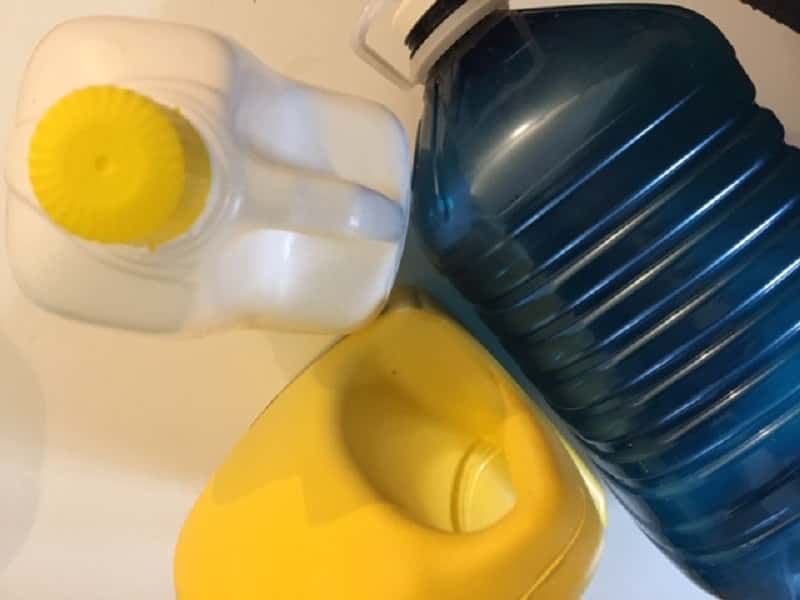
-Baoya FB77 Is A Chinese Electric Sedan With A Solid-State Battery
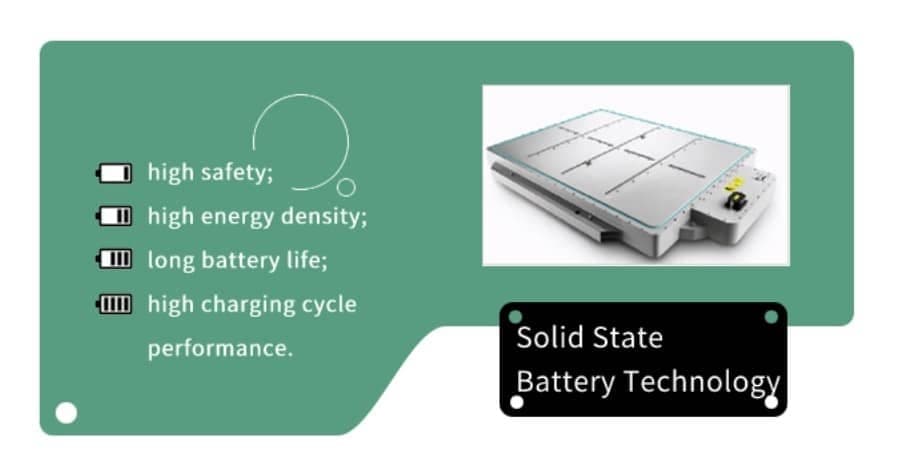
This is the new Baoya FB77, a Chinese electric sedan with a solid-state battery. Mass production is set to start later this year. Baoya (宝雅) is a brand under FAW Jilin·Shandong Baoya Automobile. This is a joint venture between FAW-Jilin and Shandong Baoya New Energy Automobile.
FAW-Jilin used to be a wholly owned subsidiary of First Auto Works (FAW). But in 2020, FAW sold 70% of the shares to Shandong Baoya. FAW-Jilin made cars under the Senya brand. In 2021, Shandong Baoya announced a relaunch of the Senya brand but nothing has come of it yet. Chemical recycling – PET-nonwovens
So the FAW Jilin·Shandong Baoya Automobile joint venture is partially an internal Shandong Baoya JV. This kind of construction is common in China. Lynk & Co for example started as a joint venture between Geely Cars and Volvo Cars, both owned by the Geely Group.
The FB77 is the first vehicle under the Baoya brand. We don’t know the English name of the brand yet. But the blue pre-production car has the name ‘ChiJet’ on the license plate area. So perhaps that’ll be the English name.
Now to the car.
The FB77 is a stylish A+ class sedan with an aerodynamic body and striking ‘air inlets’ in the bumper. Trial production began in July 2021, but the project was delayed due to the pandemic. The company says the FB77 was designed by none other than the famous Italian design studio Pininfarina.
Unique selling point of the FB77 is its solid-state battery pack. The solid state battery is developed and manufactured by Shandong Baoya New Energy Automobile. Range of the FB77 will be about 600 kilometers, according to the company. The FB77 is based on the ‘Dolphin’ platform, which is developed in-house as well. The car will get L2 autonomous driving capability. Chemical recycling – PET-nonwovens
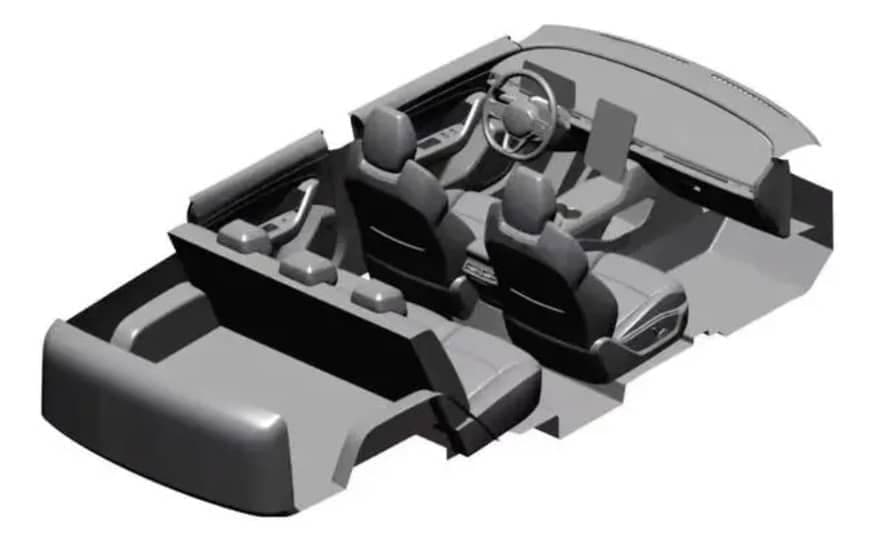
-Vanden Recycling upgrades facilities with technology investments
Vanden Recycling, a global plastics recycling business headquartered in the UK, has invested in new technology designed to enable the company to better support its customers’ needs, specifically regarding the quality of the recycled plastic feedstock processed. The investment includes a new laboratory at the company’s facility in Turkey containing high resolution and high accuracy equipment that aids in the analysis of recycled plastic, and new material scanning equipment for its Australian, European and UK operations. Chemical recycling – PET-nonwovens
These expanded technical capabilities allow Vanden to qualify material samples much faster, providing a more accurate assessment of material quality for customers.
This includes identifying plastic types, combinations of plastics, contaminations, multi-layers, melt flow rate and density which means even more certainty can be provided around material performance and consistency, as well as more accurate alignment with recycler or manufacturer requirements.
“Vanden`s global presence with teams on the ground, working closely with suppliers and customers, enables us to access all types of plastic waste and recyclables,” Damien van Leuven, Vanden CEO said. “Correct identification of material quality at source and the subsequent control through the production process is the main factor affecting the success of the plastic re-entering the supply chain.” Chemical recycling – PET-nonwovens

-Freudenberg to demonstrate composite capabilities at JEC
Freudenberg Performance Materials will present its latest surfacing veils and core materials for lightweight fiber reinforced plastic (FRP) parts at the upcoming JEC in Paris, France.
Freudenberg will also be showcasing Enka Solutions flow media and spacers for efficient vacuum infusion, resin transfer and foam injection molding processes for applications in the composites industry, etc. at the international composites show which takes place from April 25-27, 2023. Chemical recycling – PET-nonwovens
Freudenberg’s solutions for the FRP industry include a variety of glass, PAN and PET nonwovens, as well as core materials for the production of lightweight fibre reinforced plastic parts. These products are designed for anti-corrosion coatings in piping and tank construction, smooth UV resistant surfaces for facade panels, and other applications for a diverse range of end products. Products made from fiber reinforced plastics must be equipped with surfacing veils to provide abrasion resistance, corrosion resistance, smooth surfaces and mechanical strength. Freudenberg offers high-tech nonwovens that can meet these challenges. Chemical recycling – PET-nonwovens
Enka Solutions products are characterized by their typical 3D entangled polymeric filament structures. Thanks to this unique structure, they are exceptionally suitable as flow media and spacers when producing composite materials. Readily available solutions for VARTM, SRIM and foam molding processes ensure the high performance of small- and large-scale complex fiber reinforced plastic parts at low cost and in one pass.

-Scaling up good practices can boost sustainability of plastics
Plastics have many useful applications, but the global production and consumption trends of these materials are currently unsustainable.
Circular and sustainability practices throughout the lifecycle of plastics can help reduce greenhouse gas emissions, pollution, and waste.
According to a European Environment Agency (EEA) analysis, published today, many such good practice examples already exist and would need to be scaled up to enable a circular plastics economy in Europe. Chemical recycling – PET-nonwovens
The EEA briefing ‘Pathways towards circular plastics in Europe — good practice examples from countries, business, and citizens’ is intended to inspire businesses, policymakers and citizens to make the production and consumption of plastics more circular and sustainable. The briefing is based on an underpinning technical report by the EEA’s European Topic Centre on Circular Economy and Resource Use.
According to the EEA briefing, three main pathways can make the production and consumption of plastics more sustainable: smarter use of plastics, increased circularity, and more renewable materials.
Using plastics in a smarter way include reducing unnecessary packaging and single-use products, as well as more circular design that makes products last longer and easier to reuse and repair. Chemical recycling – PET-nonwovens
Other examples to use plastics in a smarter way also already exist across Europe in the form of gear rentals, car, and tool sharing and, for example, reusing crates and pallets in the food sector, the EEA briefing notes.
Increasing circularity requires longer use and reuse of products and better collection, sorting and recycling of plastics. Good practice examples include stores that offer to take back their products at the end of product life-cycle, which can improve the quality of recycled materials or enable some type of reuse. The role of consumers is also critical in choosing what to buy and ensuring proper recycling. Overall, many European markets of recycled raw materials, including for mixed plastics, are not functioning well, according to a recent EEA analysis. Chemical recycling – PET-nonwovens
Increasing the use of renewable materials involves, for example, using more recyclable, bio-based plastics, instead of relying solely on fossil fuels and their imports. According to the EEA briefing, increasing the use of renewable materials should focus on the second- and third-generation feedstocks that do not compete with food and feed production.
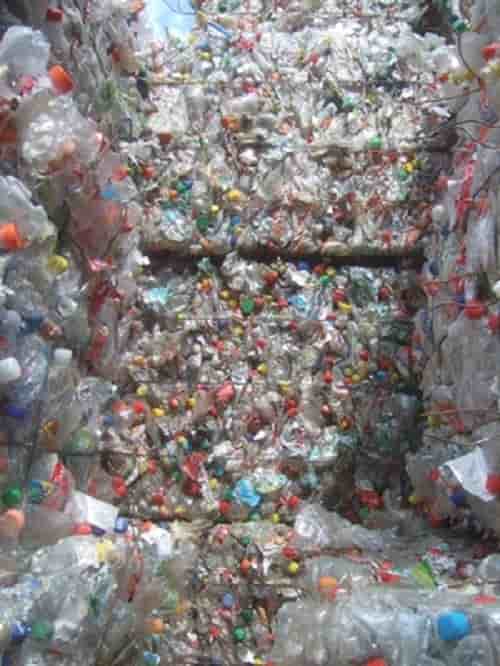
-Grupa Azoty S A : Construction of Grupa Azoty’s new plant approaching finish line.Polimery Police, one of the largest chemical projects in Europe, exceeds 99% completion.
Construction of Grupa Azoty’s new plant approaching finish line. Polimery Police, one of the largest chemical projects in Europe, exceeds 99% completion.
At the end of January, the overall stage of completion of Grupa Azoty Group’s flagship project in Police exceeded 99.01% and entered its final phase. The project is of strategic importance to the national economy and will boost growth of Poland’s plastics segment. The complex will be the largest propylene and polypropylene plant in Central and Eastern Europe. Chemical recycling – PET-nonwovens
The new plastic products marketed under the Gryfilen® trademark will have a very low volatile substance content and will be free of phthalates and bisphenol A (BPA). They will not absorb flavours or odours, which is vital in food industry applications.
The final phase of the project began with the first propane delivery received at the new gas terminal in Police at the end of December last year. Grupa Azoty Polyolefins S.A., the special-purpose vehicle responsible for implementing the project, has just completed the propane and propylene registration process in compliance with EU requirements of the European Chemicals Agency relating to the registration, evaluation, authorisation and restriction of chemicals. Chemical recycling – PET-nonwovens
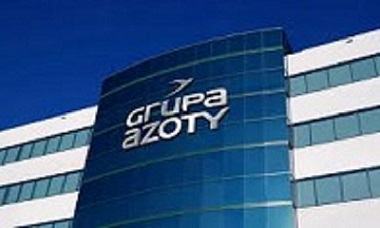
Recycled PET – Low-carbon-H2 21- 02-2023
